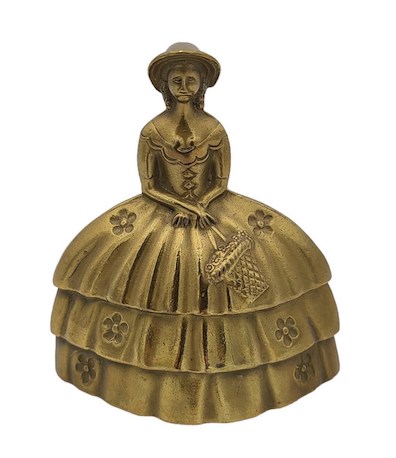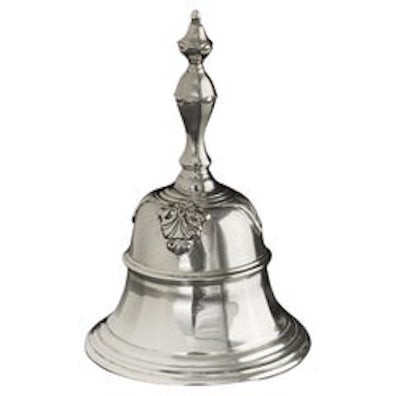As Lydia Douce tells Simon Dedalus about the piano
tuner—"an exquisite player"; "The real classical, you know. And
blind too, poor fellow"—she is interrupted by the sound of a
customer requesting a beer in the restaurant next door: "Tink to
her pity cried a diner's bell." The bell is a historical
curiosity. The neologism used to describe its sound is
onomatopoeic, and it evidences Joyce's habit of
truncating words into their
component syllables, which up to this point in
Sirens
has focused almost exclusively
on
Bloom.
Instead of today's practice of leaving it to customers to try
desperately to catch a waiter's eye when they need assistance
(and hoping that the waiter will leave them in peace to eat
their food when they do not), Victorian restaurants (and,
evidently, some grand private houses in that era) used to keep
small bells on the tables for people to summon servers when they
required something. Many Korean restaurants have similar
arrangements today, but in other establishments it has gone the
way of whalebone corsets. A pity.
Pat, the waiter in the restaurant, responds grumpily to the bell
and comes to the door leading into the bar to communicate the
diner's request to the barmaid: "To the door of the diningroom
came bald Pat, came bothered Pat, came Pat, waiter of Ormond.
Lager for diner. Lager without alacrity she served." Miss Douce
is evidently no more delighted to be of service than is Pat.
Jarred out of her heartfelt conversation with the charming
Dedalus, she serves the beer "
without alacrity," in
contrast to her earlier willingness to serve Simon his glass of
whiskey "with the greatest alacrity." The chapter's overture
records the moment in which the little bell interrupts her
revery: "
Tink cried to bronze in pity."
"Tink" seems to be a shortened version of "tinkle": a light,
high-pitched ringing. Joyce's monosyllable imitates the delicate
little metallic pinprick, adding one more note to the swirl of
sound in the chapter.

